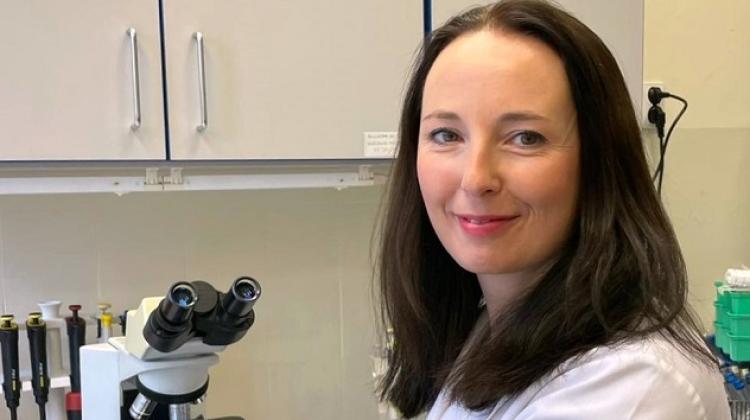Sleep-improving mask: they invented it, because they had too little time

In college we had to study a lot and not enough time, so we decided to create a device that would monitor sleep, allowing to sleep more efficiently - says in an interview with PAP Kamil Adamczyk, head of the company Interclinic that created the mask that analyses the sleep quality.
The company Intelclinic has developed an electronic mask, which allows to monitor sleep and improve its quality. The device analyzes sleep and sends the information via Bluetooth to a special application on your smartphone. The data is then analyzed and the phone wakes you up at the right moment. The idea of Polish inventors was recognised by the jury of LeWeb 2013 in Paris and won the first prize. The competition was attended by 700 start-ups, companies that develop innovative solutions.
The company was founded by two graduates of Warsaw University of Technology - Janusz Frączek and Krzysztof Chojnowski, and student of the Medical University of Warsaw - Kamil Adamczyk.
PAP: Why did you decide to build a sleep monitoring device?
Kamil Adamczyk, CEO of Intelclinic: The idea was born during studies. We we had to study a lot and not enough time, so we became interested in polyphasic sleep. Switching to polyphasic sleep (polyphasic sleep is an alternative to normal, monophasic sleep, which consists in sleeping through several cycles of short naps during the day instead of a night of sleep - PAP) proved difficult, so we started to wonder how to facilitate this process. We decided to build a device that would allow us to monitor sleep, and be able to sleep more efficiently.
PAP: How does your device work?
K.A.: It is a sleep monitoring device, allowing the user to verify whether he sleeps properly or he should make a change. The glasses are fitted with sensors that monitor electrical brain activity during sleep, as well as eye and muscle movements, and on this basis we obtain a graph of our sleep.
Since the device is designed for a broad consumer market, it will not be as accurate as medical devices. However, it will allow for signaling detected automatically irregularities and propose a consultation with a doctor. However, these data will have no diagnostic value.
With this unit, users will simply be more aware of their sleep. It will also allow to notice and eliminate possible behavioral sleep disorders and improve sleep hygiene.
Allow me to emphasize, however, that you should not treat this as a diagnosis, but as a kind of suggestion that there might be something wrong with your sleep and you might consider seeing a doctor.
PAP: You have managed to raise the funds needed for production, recently you received an award in Paris in a competition for young innovative companies. What\'s next?
K.A.: We will deliver the first unit in April next year. In the near future we will start working with a private sleep clinic in Poland to increase the precision of our device. We hope that by working with physicians and hospitals we will be able to publish our findings validated and described by professional doctors. We also plan to start cooperation with university hospitals and clinics in the U.S. and see how it develops.
PAP: Polyphasic sleep raises a lot of controversy, there are voices that it is not fully healthy, that it is difficult to apply in life. How do you respond to thatr?
K.A.: In Poland, there are opinions that we are followers and promoters of polyphasic sleep, and all we want to do is to give people the opportunity to switch to polyphasic sleep. We always emphasize that the healthiest sleep is 9 hours sleep and there is no substitute. There are, however, these moments in human life when it is difficult to sleep 9 hours. Our device can help stabilize sleep to always benefit us. If someone regularly sleeps four hours, because this is what work allows him to do, the arguments to sleep nine hours because it is healthy will not appeal to such person. You need to find a solution to help him optimize these four hours.
PAP: Who is the device primarily intended for?
K.A.: I think first of all the people who are very busy, in order to raise their awareness of the importance of a sound sleep. But every person who wants to sleep better can use it. We also want to cooperate with airlines to help passengers on transatlantic flights monitor their sleep and possibly better distribute their naps before and after the trip to compensate for the effects of changing time zones.
PAP - Science and Scholarship in Poland
krm/ ula/ mrt/
tr. RL
Przed dodaniem komentarza prosimy o zapoznanie z Regulaminem forum serwisu Nauka w Polsce.














